International Movement for Monetary Reform gathers momentum

Two weeks ago 34 monetary reform activists, from Iceland to South Africa, got together in Brussels for a training organised by Positive Money.
In 2013, Positive Money initiated the International Movement for Monetary Reform (IMMR) having realised there were groups across the world calling for sovereign money. In 2013, fifteen countries got involved. Three years later, twenty-four countries are now part of the IMMR – With Greece, Bulgaria, Slovakia, Poland having joined recently.
Whilst the movement has continued to grow, there had never been an opportunity for members from different national groups to meet face-to-face. We wanted to change this. So, organising an international training was a key goal for this year.
The intention of the training was to share Positive Money’s know-how, as well as build capacity and distributed leadership across the IMMR. We wanted our experience of building a campaign in the UK, to help other countries accelerate their campaign, determine strategies and imagine new tactics to make change happen.
34 people joined us in Brussels, from 18 countries including South Africa and Iceland. Some participants were long-time campaigners, while other were just setting up a group in their country.
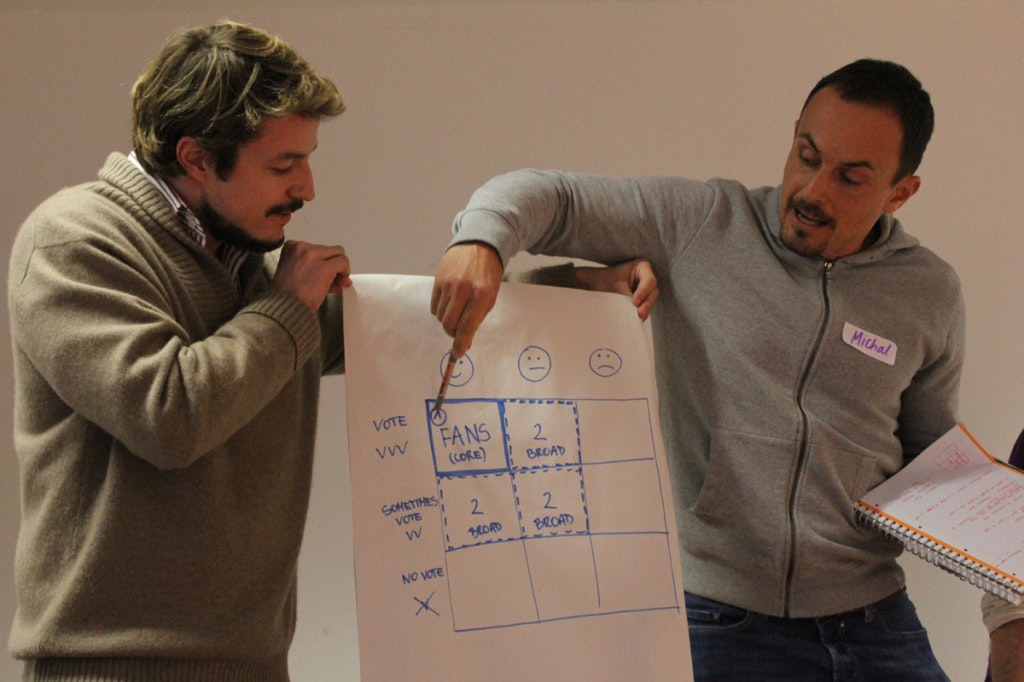
We decided to combine the training with the conference on QE for People at the European Parliament which took place on February 17th. This gave participants a chance to visit the European Parliament, watch the event and have a conversation with Molly Scott-Cato, British MEP for the Greens.
The first day of the training focused on sharing Positive Money’s Research Programme. Frank, our researcher, offered insights on research success factors at Positive Money, as well as the strategy behind key publications. “We don’t do research just to find the truth, but to contribute to our campaign’s goals as well” explained Frank.
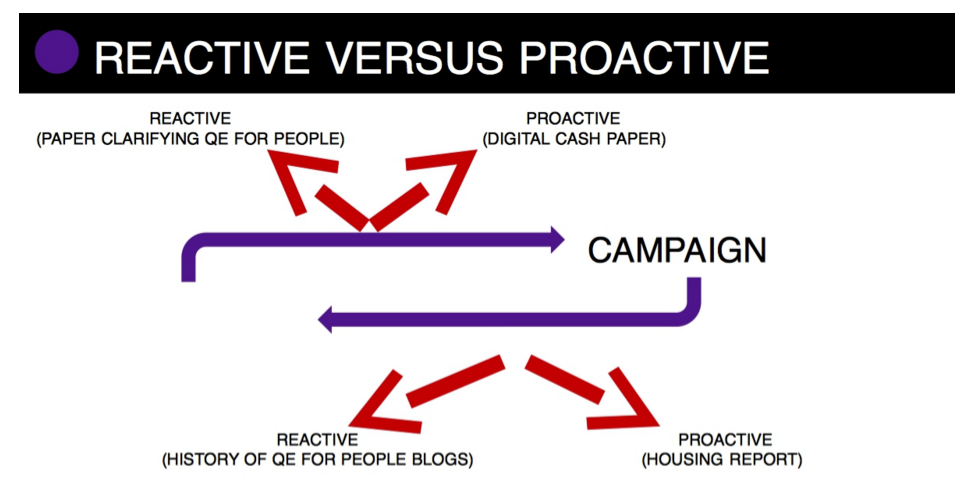
During the evening, participants discussed hot topics within the movement: the Swiss campaign and the next steps towards a national referendum, the Danish campaign and the Quantitative Easing for People campaign in the Eurozone.
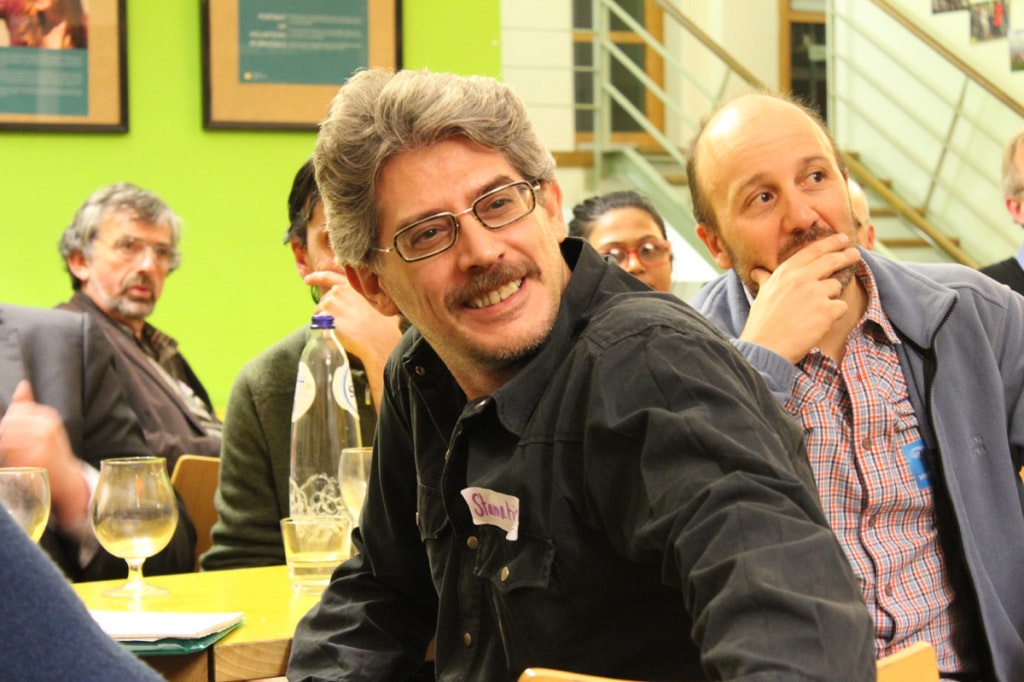
The next day the focus was on developing national strategies. Fran, our Executive Director, presented Positive Money’s tools and methodologies, and each group worked on their strategy. National groups teamed up with another country and committed to support each other in the future. Towards the end of the day we had a session identifying the common purpose of the IMMR.
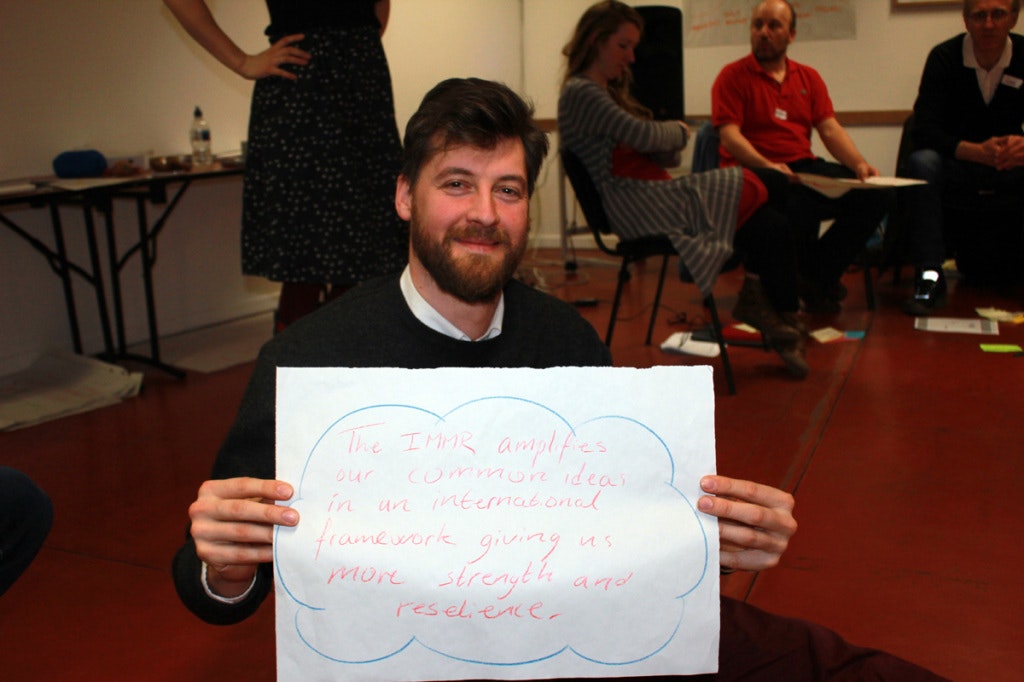
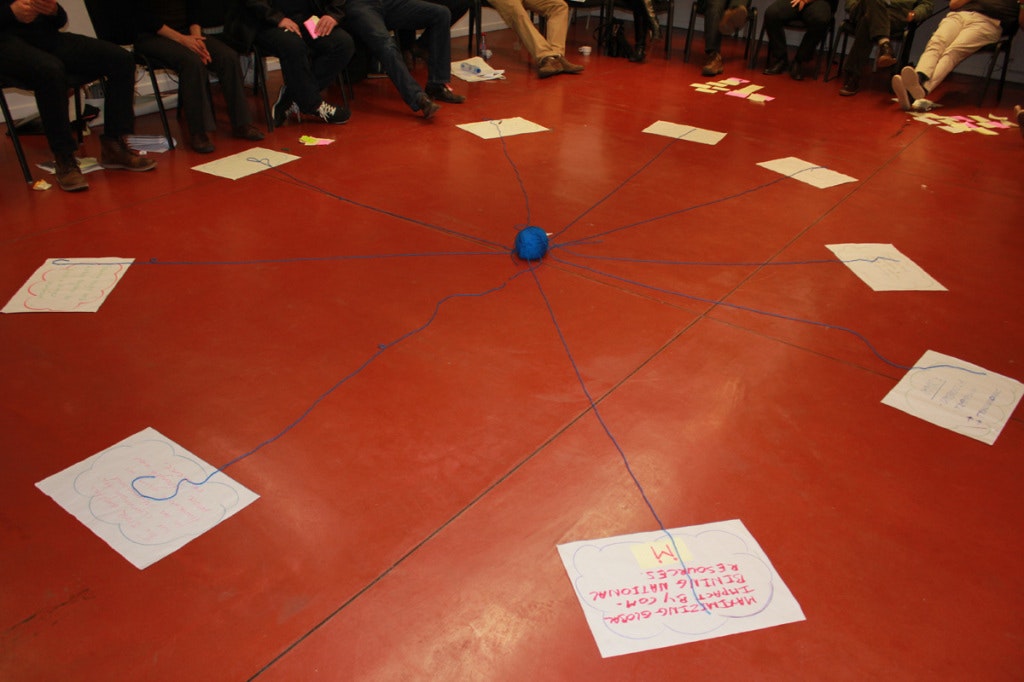
The third day was about building vibrant online and offline campaigns. Mira, our Social Media Manager, shared her top-tips for making the most out of online channels. Sylviane, our Operations and Finance Manager, helped participants identify routes for fundraising.
During the afternoon, Stanislas, our International Coordinator, animated a session on Governance and Decision-Making and shared his experience with using Sociocracy in grassroot movements. He then facilitated a session in which the group came to an agreement on the common purpose of the IMMR, using a decision making process based on consent.
Here is the statement that was agreed on:
“The purpose of IMMR is to strengthen co-operation of national organisations through the sharing of resources and experiences and coordinating progress towards monetary reform in order to amplify our impact on the international level.”
After an exciting night out in Brussels, participants gathered on Sunday for the last day of the training. The focus was on skill-sharing sessions and identifying the next steps for the movement. Participants left expressing a feeling of commitment to building an international momentum for monetary reform.
The movement now has vibrant campaigns in the UK, Netherlands, Switzerland, Iceland and Denmark. We hope that this training will enable campaigners for Sovereign Money in member countries to cooperate, share best practice and strengthen each other’s work. We are very excited about the next stage of the IMMR!
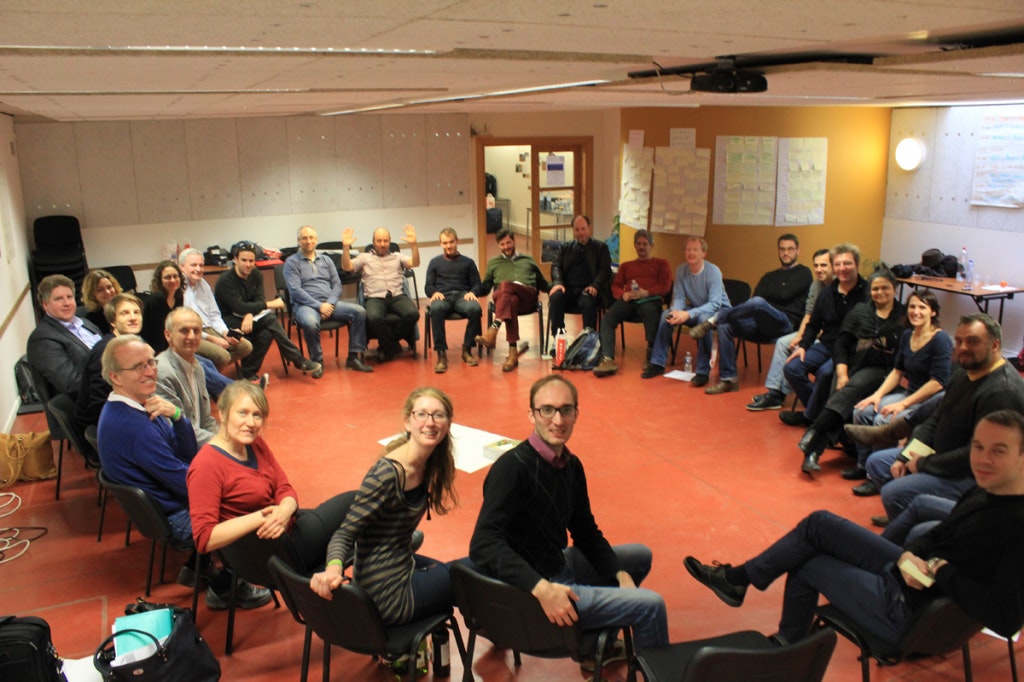
We would like to thank the KR Foundation for contributing to this work.